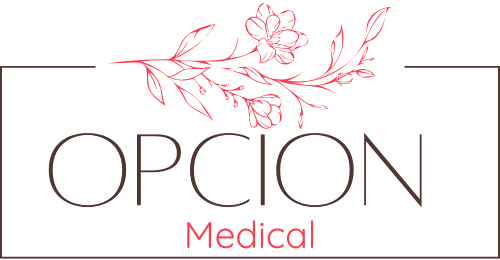Pharmaceutical therapy stands as one of the most pivotal components in the realm of modern healthcare. It serves as a beacon of hope, offering transformative success in the treatment and management of various diseases and conditions. From common ailments to rare disorders, pharmaceutical therapy plays a central role in improving patient outcomes and enhancing overall well-being.
Understanding Pharmaceutical Therapy
At its core, pharmaceutical therapy encompasses the use of medications and drugs to prevent, diagnose, and treat illnesses. This multidisciplinary field merges aspects of chemistry, biology, pharmacology, and medicine to develop effective therapeutic interventions. Its roots trace back through centuries of medical history, evolving from ancient herbal remedies to the sophisticated drugs of today.
Key Pillars of Pharmaceutical Therapy
Medications and Drug Development
Central to pharmaceutical therapy is the continuous innovation in medication development. Pharmaceutical companies invest substantial resources in researching and synthesizing new compounds to address unmet medical needs. These efforts pave the way for groundbreaking treatments that target specific diseases with greater precision and efficacy.
Clinical Trials and Research
The rigorous process of clinical trials serves as a cornerstone in evaluating the safety and effectiveness of pharmaceutical interventions. These trials, conducted in various phases, provide valuable data on the therapeutic potential of new drugs. Through meticulous research and analysis, scientists can ascertain the benefits and risks associated with different treatment modalities, ensuring optimal patient care.
Regulatory Bodies and Approval Processes
Government regulatory agencies, such as the Food and Drug Administration (FDA) in the United States, play a vital role in overseeing the pharmaceutical industry. These entities set stringent standards for drug approval, ensuring that medications meet stringent criteria for safety, efficacy, and quality. By adhering to regulatory guidelines, pharmaceutical companies can obtain market authorization for their products, facilitating access to life-saving treatments.
Impact of Pharmaceutical Therapy

The impact of pharmaceutical therapy extends far beyond the realm of healthcare, permeating into various facets of society. By effectively managing chronic conditions and acute illnesses, pharmaceutical interventions contribute to improved health outcomes and prolonged life expectancy. Furthermore, these treatments alleviate the burden of disease, enabling individuals to lead productive and fulfilling lives.
Challenges and Limitations
Despite its numerous benefits, pharmaceutical therapy is not without its challenges and limitations. Access to essential medications remains a pressing issue, particularly in underserved communities and developing countries. Moreover, concerns surrounding drug safety and potential side effects underscore the importance of rigorous monitoring and surveillance. Ethical dilemmas also arise, particularly in the context of genetic engineering and experimental treatments.
Innovations and Future Trends
The landscape of pharmaceutical therapy continues to evolve rapidly, driven by advancements in science and technology. Precision medicine, which tailors treatments to individual genetic profiles, holds promise for personalized healthcare delivery. Biotechnology innovations, such as gene editing and cell therapy, offer novel approaches to disease management. Additionally, digital health solutions, including telemedicine and wearable devices, are revolutionizing patient care delivery and monitoring.
Case Studies and Success Stories
Numerous success stories highlight the transformative power of pharmaceutical therapy. From the eradication of infectious diseases to the management of chronic conditions, pharmaceutical interventions have saved countless lives and alleviated human suffering. Patient testimonials underscore the profound impact of these treatments, showcasing stories of resilience and triumph in the face of adversity.
Global Perspectives on Pharmaceutical Therapy
Despite its remarkable achievements, access to pharmaceutical therapy remains unequal on a global scale. Disparities in healthcare infrastructure, socioeconomic factors, and regulatory frameworks contribute to inequalities in treatment access. International collaborations and initiatives seek to address these disparities, promoting equitable distribution of medications and fostering scientific exchange.
Addressing Disparities in Access
Despite significant advancements in pharmaceutical therapy, disparities in access persist on a global scale. Developing countries often face challenges in accessing essential medications due to factors such as limited healthcare infrastructure, inadequate funding, and regulatory hurdles. As a result, millions of individuals are left without access to life-saving treatments, exacerbating health inequalities and perpetuating cycles of poverty and disease.
International Collaborations and Initiatives
Addressing these disparities requires concerted efforts from governments, non-governmental organizations (NGOs), and international bodies. Collaborative initiatives, such as the World Health Organization’s (WHO) Access to Medicines program, aim to improve access to essential medications in low- and middle-income countries. By fostering partnerships between pharmaceutical companies, governments, and civil society organizations, these initiatives work to reduce barriers to treatment access and promote equitable healthcare delivery.
Innovation in Drug Delivery and Distribution

Innovations in drug delivery and distribution play a crucial role in improving access to pharmaceutical therapy worldwide. From novel packaging solutions to innovative distribution networks, these advancements aim to streamline the supply chain and ensure timely delivery of medications to remote and underserved areas. Furthermore, digital health technologies, such as mobile health applications and telemedicine platforms, facilitate remote consultations and medication delivery, bridging geographical barriers and expanding access to care.
Overcoming Regulatory Challenges
Regulatory challenges pose significant barriers to accessing pharmaceutical therapy in many regions. Stringent approval processes, intellectual property rights issues, and pricing regulations can hinder the availability of essential medications, particularly in developing countries. Addressing these challenges requires collaborative efforts between governments, regulatory agencies, and pharmaceutical companies to streamline regulatory pathways, promote generic drug production, and facilitate technology transfer agreements.
Promoting Health Equity and Social Justice
At its core, improving access to pharmaceutical therapy is a matter of health equity and social justice. Every individual, regardless of their socioeconomic status or geographic location, deserves access to essential medications and healthcare services. By prioritizing equity in healthcare delivery and addressing the root causes of health disparities, governments and organizations can create a more inclusive and just healthcare system that meets the needs of all individuals.
Empowering Communities and Building Capacity
Empowering communities and building local capacity are essential components of improving access to pharmaceutical therapy. Community-based healthcare initiatives, training programs for healthcare providers, and public education campaigns can enhance awareness of health issues and promote preventive measures. By investing in infrastructure, technology, and human resources, countries can strengthen their healthcare systems and ensure sustainable access to pharmaceutical therapy for future generations.
Conclusion
In conclusion, pharmaceutical therapy stands as a beacon of hope in the journey towards transformative success in healthcare. Through continuous innovation, rigorous research, and global collaboration, this field has revolutionized the treatment and management of diseases. As we look towards the future, the promise of pharmaceutical therapy remains bright, offering hope and healing to individuals around the world. Addressing global disparities in access to pharmaceutical therapy requires a multi-faceted approach that combines innovation, collaboration, and advocacy. By working together to overcome regulatory challenges, expand access to care, and promote health equity, we can ensure that all individuals have access to the medications and treatments they need to live healthy and productive lives.
